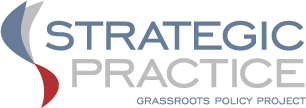A.I.G. and the Bailout Backlash
I read two stories today that got my dander up. The first was a report that city workers in Boston have been offered a 'choice' between pay cuts or layoffs. The second was about the details of the latest outrage from A.I.G.: they are still paying bonuses with public rescue dollars.
A.I.G. claims they were contractually obligated to pay the bonuses, which were agreed to before the firm received bailout funds. Seems to me the public employees of Boston also could claim that their contracts included annual cost-of-living increases that should be honored. Even with the pay cuts, there is no guarantee against layoffs. Why is it that the people who are doing their jobs face pay cuts while the people who brought down the world’s largest insurance company get publicly-financed bonuses?
Congressman Elijah Cummings (D-MD) shared my sense of outrage: "A.I.G. has been trying to play the American people for fools by giving nearly $1 billion in bonuses by the name of retention payments. These are nothing but a reward for obvious failure, and it is an egregious offense to have the American taxpayers foot the bill.”
Apparently, A.I.G. also has been dragging its feet in disclosing how they have been using the rest of the bailout funds. The way I see it, we, the public, are now 80 percent owners of A.I.G. and we have a right to know exactly what they are doing. We also have a right to demand that, instead of getting bonuses, many of their managers should be demoted or fired.
According to today’s New York Times, some in the Administration are concerned about populist anger being channeled into a ‘bailout backlash.’ They are right to have these concerns. It sure seems like the President's call for shared sacrifice applies to real workers but not to Wall Street managers whose irresponsible actions helped create the mess we’re in. So, yes, the populist anger is real, and it is justified. And, yes, it probably will complicate efforts to get authorization for future bailouts.
I have been one of those people who has seen some form of bailout (with transparency, greater public equity and control) as a necessary evil, as part of a larger economic recovery plan. As someone who wants this Adminstration's recovery plans to succeeed, I have some free advice for them: work with grassroots leaders and advocacy groups who can help channel populist anger into support for a more responsible and just bailout that is tied to a new regulatory framework. Groups like the National Training and Information Center (NTIC), who know a lot about the mortgage crisis and the role of deregulation in spawning predatory lending. They have proposals for a new ‘Community Reinvestment Act’ that gets at underlying causes and empowers communities to get the investments they need for families and small businesses. And the Coalition for an Accountable Recovery, of which NTIC is a part, who have concrete and workable proposals for bringing transparency and accountability into the financial sector. Or the many community-oriented 'experts' named in a recent article from Robert Kuttner. There are many more groups I could name here. My point is that, in order to find a people-oriented solution, we need people-oriented groups at the table, not just the folks who used to work for Wall Street.
--Sandra Hinson

